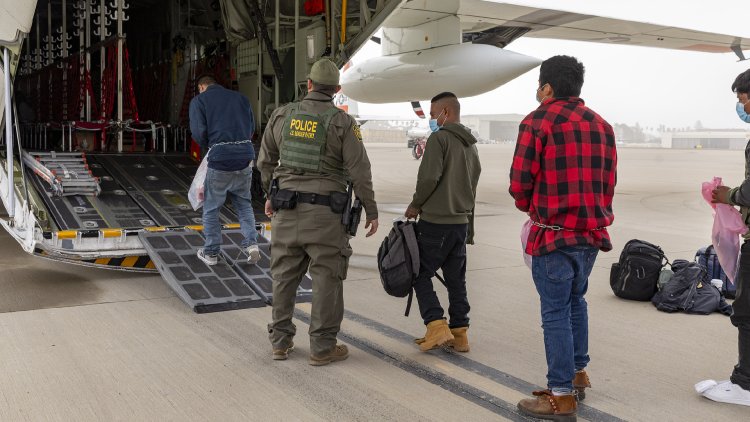Study: U.S. Immigration Policies Impede Bird Flu Prevention Efforts
A recent report by KFF, a health policy organization, highlights how fear of deportation keeps foreign farmworkers in the United States from seeking necessary medical care, which hampers vital efforts to avert a possible bird flu pandemic.

Dairy and poultry workers have been responsible for the majority of bird flu cases in the country, making their detection and prevention essential to avert a pandemic. However, public health specialists are finding it difficult to connect with farmworkers, many of whom are afraid to interact with outsiders or leave their homes, the report indicates.
"People are very scared to go out, even to get groceries," said Rosa Yanez, an outreach worker at Strangers No Longer, a Catholic organization that assists immigrants and refugees facing legal and health issues, including concerns related to the bird flu.
Since March 2024, approximately 65 dairy and poultry workers across the U.S. have tested positive for bird flu, but infectious disease scientists caution that the actual number of infections is likely higher due to insufficient surveillance that has permitted cases to go unnoticed on farms.
Health workers noted that the situation worsened following the change in administration this January. A Latina outreach worker in Michigan, who asked to remain anonymous for fear of repercussions against her family, explained, "Many people don't go to the doctor right now because of the immigration situation."
"They prefer to stay at home and let the pain or redness in the eye or whatever it is go away," she continued. "Things have really intensified this year, and people are very, very scared."
The fear is affecting all Hispanic communities, regardless of their legal status, according to the KFF report. "Regardless of immigration status, people who look like immigrants are feeling a lot of fear right now," remarked Hunter Knapp, the development director at Project Protect Food Systems Workers, a farmworker advocacy organization in Colorado engaged in bird flu outreach.
This climate of fear has eroded trust between health workers and farmworker communities. "Dairy workers became even less willing to speak about the lack of protection on dairy farms and the lack of sick pay when they're infected – even anonymously," noted Antonio De Loera-Brust, a spokesperson for the United Farm Workers.
"Being Latinos, we are always identified," said the anonymous outreach worker. "I have a visa that protects me, but things are changing very quickly under the Trump administration, and the truth is, nothing is certain."
Last year, the Centers for Disease Control and Prevention initiated a seasonal flu vaccine campaign aimed at over 200,000 livestock workers, hoping that vaccination would reduce the chances of farmworkers contracting both seasonal and bird flu viruses. However, vaccination rates plummeted following immigration raids in January, health workers reported.
Anna Hill Galendez, a managing attorney at the Michigan Immigrant Rights Center involved in bird flu outreach, remarked that aggressive tactics by Immigration and Customs Enforcement (ICE) agents have made sick dairy workers in Michigan's Upper Peninsula hesitant to leave home to seek care.
"They wanted medical care. They wanted flu vaccines. They wanted personal protective equipment. They wanted to get tested," Hill Galendez said. "But they were afraid to go anywhere because of immigration enforcement."
De Loera-Brust of the United Farm Workers highlighted the collective nature of the health threat: "Every time a worker gets sick, you're rolling the dice, so it's in everyone's interest to protect them. The virus doesn't care what your immigration papers say."
Public health officials continue to be concerned about the pandemic threat, emphasizing that each human infection provides an opportunity for the virus to evolve into a strain that could spread more easily among people.
Lucas Dupont for TROIB News












